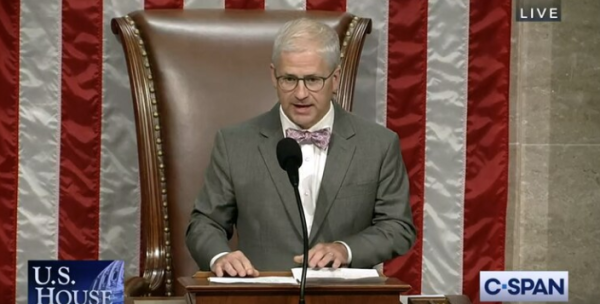
The long-awaited arrangements that will support investments in electricity storage stations with a total capacity of 3.5 GW by the end of the decade, as well as 10 pilot floating photovoltaic parks are included, among others, in the Renewable Energy Sources (RES) multi-bill, which was put up for public consultation yesterday until May 10.
The main interventions of the new legislative initiative of the Ministry of Environment and Energy (RIS) include arrangements for the reform of the licensing process for the installation of individual electricity storage stations, as well as for the licensing of RES and SIPHERGY power plants, built-in electricity storage unit, which either have the ability to absorb energy from the transmission system or the electricity distribution network, or not.
Electricity storage systems are divided into two categories. For pure storage projects (ie individual storage stations) for which the electricity storage permit will be granted in proportion to the requirements for special RES projects and for storage projects combined with RES stations (hybrid systems).
In particular, in the case of storage projects combined with RES stations, the storage station will be able to operate only in support of the RES station (the storage unit is behind the RES station – downstream of the meter) and will not absorb energy from the network, at which time it receives a Producer Certificate like the usual RES projects and will be able to receive operating aid (subsidy). However, it will be able to absorb energy from the grid, at which time it will receive a Certificate of Producer of Special RES Works, but will not be able to receive operational support.
More specifically, a general licensing framework is proposed for the exercise of the electricity storage activity and the relevant procedures are regulated. It is also foreseen the observance by the licensing body and the Energy Regulatory Authority (RAE) of the Electronic Register of Electricity Storage, through which the licenses for storage of electricity will be issued and in which they will be registered. the required data, applications, procedures and details, as specified in the Storage License Regulations and which is designed to be connected to the electronic systems of the other licensing bodies.
The following are provided for the exercise of the activity of storage of electricity:
- The activity of electricity storage is allowed to natural or legal persons who have been granted electricity storage license or who have been legally exempted from this obligation.
Storage Stations with a nominal capacity of less than one MW are exempted from the obligation to obtain a storage permit. - The electricity storage permit is issued by RAE for a period of up to 25 years and can be extended for an equal period of time. Especially for pumped storage technology storage stations, the storage license is granted for a period of up to 35 years.
- The bill also sets a special priority framework for the granting of final Connection Offers for electricity storage stations by the competent System or Network Operator and authorizes the Minister of Environment and Energy to set special terms, conditions and restrictions.
Storage units for Administrators as well
The proposed bill introduces a provision for the regulation of the ownership status of energy storage facilities by transmission system operators (IPTO, HEDNO). As a general rule, electricity storage activity is a competitive activity and electricity transmission system operators are prohibited from owning, developing, managing or operating energy storage facilities.
Exceptionally and with the approval of the Energy Ministry, the managers will be able to maintain such facilities only if they are fully integrated components of the network, as well as in case the regulatory authority has assessed that there is a relevant need, which can not be met by third parties. following competitive procedures and under the constraints of Community law.
Any such derogation should be notified to the Agency for the Cooperation of Regulatory Authorities (RAE), as well as to the European Commission. In addition, RAE will assess this need at regular intervals, in order to gradually abolish the relevant activities of managers.
The government’s goal is to have at least 3.5 GW of electricity storage stations in operation by 2030, in addition to the hydroelectric units. By the end of 2025, according to the forecasts of the Recovery Fund, storage stations with a total capacity of about 1,500 MW will have been installed, of which 800 MW to 900 MW will come mainly from storage systems of limited capacity (eg batteries) and about 700 MW from large storage systems (eg pump storage stations).
Storage in high productivity agricultural land
In agricultural plots that are characterized as high productivity agricultural land, it is prohibited to carry out any activity other than agricultural and the production of electricity from RES stations. This prohibition does not apply in the case of execution of military projects, large development projects of the State and the Local Authorities, for the construction of transmission and distribution networks of electricity and natural gas, substations and in general for the execution of every project related to the infrastructure of the electric system and the natural gas network, of electricity storage stations or for Strategic Investment cases.
Especially the production of electricity from photovoltaic stations with an installed capacity of more than or equal to 1 MW is prohibited in plots that are characterized as high productivity agricultural land, including the areas of Attica, as well as areas of the Territory that have already been designated as high agricultural land. General Urban Plans (GIS) or Plans of Spatial Housing Organization of Open City, in Housing Control Zones and in Local Spatial Plans , unless otherwise provided in these approved plans.
However, the generation of energy from photovoltaic stations with an installed capacity of less than or equal to 1 MW is permitted, provided that the specific stations, for which binding connection offers are granted by the competent Administrator, cover agricultural areas that add up to stations that have already been put into operation or have been given binding connection offers do not exceed 1% of the total cultivated areas of each Regional Unit.
The power in MW of the photovoltaic stations that are allowed to be installed in high productivity agricultural land in each Regional Unit will be determined by a joint ministerial decision within two months from the voting of the specific extension.
Development framework for 10 pilot offshore photovoltaic stations
The promoted bill includes regulations for the location, licensing, installation and operation of 10 pilot offshore photovoltaic power stations. These are power generation systems, with an installed capacity of half a megawatt (0.5 MW) to one megawatt each. They consist of floating photovoltaic installations that are placed in marine areas and anchored to the seabed or on adjacent shores, by a housing of electromechanical equipment on the ground that includes the substation with the network, connecting cables of floating installations etc.
These stations will be exempted from the obligation to obtain a Producer Certificate or Special Projects Certificate, environmental permitting and obtaining Standard Environmental Commitments, and the obligation to issue a building permit. Their location will take place in sea and land areas and the interested party (natural or legal person) will have to submit an application to the Spatial Planning Directorate of the Energy Ministry.
In fact, the final Connection Offer of the projects will be granted as a priority over all the requests and within one month from the submission of the relevant application even in areas where the networks have been characterized as saturated.
The use of sea and land areas will be granted by the Greek State, provided that a certificate has been issued for the location of the station, for their installation and operation for a period of 22 years. The land areas that can be granted are even the seashore or the beach, the public lands, forest areas as well as the properties managed by the Ministry of Rural Development and Food.
The rent for the lease of sea areas for installation and operation of floating photovoltaic stations, is defined as a monetary amount in euros per hectare, or fraction thereof, and year. The amount of rent to which the Greek State is entitled is set at 30 euros per 0.10 hectares per year. The obligation to pay rent will start from the date of signing the lease agreement and will be paid on the completion of one month from its signing.
Latest News

Airbnb: Greece’s Short-Term Rentals Dip in March Amid Easter Shift
Data from analytics firm AirDNA shows that average occupancy for short-term rentals dropped to 45% in March, down from 49% the same month last year.

Easter Week in Greece: Holy Friday in Orthodoxy Today
At the Vespers service on Friday evening the image of Christ is removed from the Cross and wrapped in a white cloth

Meloni and Trump Meet in Washington, Vow to Strengthen Western Ties
“I am 100% sure there will be no problems reaching a deal on tariffs with the EU—none whatsoever,” Trump stressed.

ECB Cuts Interest Rates by 25 Basis Points in Expected Move
The ECB’s Governing Council opted to lower the deposit facility rate—the benchmark for signaling monetary policy direction—citing an updated assessment of inflation prospects, the dynamics of underlying inflation, and the strength of monetary policy transmission.

Current Account Deficit Fell by €573.2ml Feb. 2025: BoG
The improvement of Greece’s current account was mainly attributed to a more robust balance of goods and, to a lesser extent, an improved primary income account

Hellenic Food Authority Issues Food Safety Tips for Easter
Food safety tips on how to make sure your lamb has been properly inspected and your eggs stay fresh.

Greek Kiwifruit Exports Smash 200,000-Ton Mark, Setting New Record
According to data by the Association of Greek Fruit, Vegetable and Juice Exporters, Incofruit Hellas, between September 1, 2024, and April 17, 2025, kiwifruit exports increased by 14.2%.

Easter Tourism Boom: Greece Sees 18.3% Surge in Hotel Bookings
Among foreign markets, Israel has emerged as the biggest growth driver, with hotel bookings more than doubling—up 178.5% year-on-year.

Greece to Launch Fast-Track Tender for Offshore Hydrocarbon Exploration
Last week, Papastavrou signed the acceptance of interest for the two Cretan blocks, while similar decisions regarding the two Ionian Sea blocks were signed by his predecessor

American-Hellenic Chamber of Commerce to Open Washington D.C. Branch
AmCham's new office aims aims to deepen U.S.-Greece economic ties and promote investment and innovation between the two countries







![Πλημμύρες: Σημειώθηκαν σε επίπεδα ρεκόρ στην Ευρώπη το 2024 [γράφημα]](https://www.ot.gr/wp-content/uploads/2025/04/FLOOD_HUNGRY-90x90.jpg)




![Airbnb: Πτωτικά κινήθηκε η ζήτηση τον Μάρτιο – Τι δείχνουν τα στοιχεία [γράφημα]](https://www.ot.gr/wp-content/uploads/2024/07/airbnb-gba8e58468_1280-1-90x90.jpg)

























![Airbnb: Πτωτικά κινήθηκε η ζήτηση τον Μάρτιο – Τι δείχνουν τα στοιχεία [γράφημα]](https://www.ot.gr/wp-content/uploads/2024/07/airbnb-gba8e58468_1280-1-600x500.jpg)


 Αριθμός Πιστοποίησης
Αριθμός Πιστοποίησης